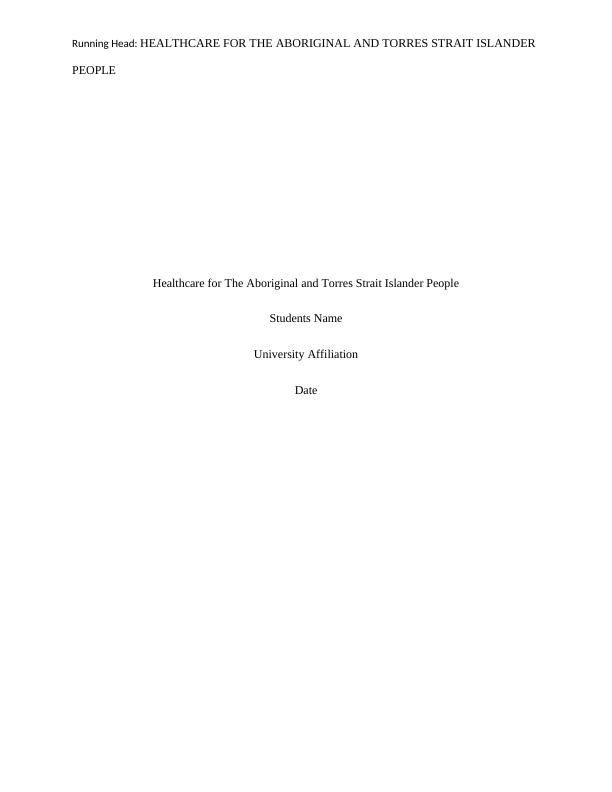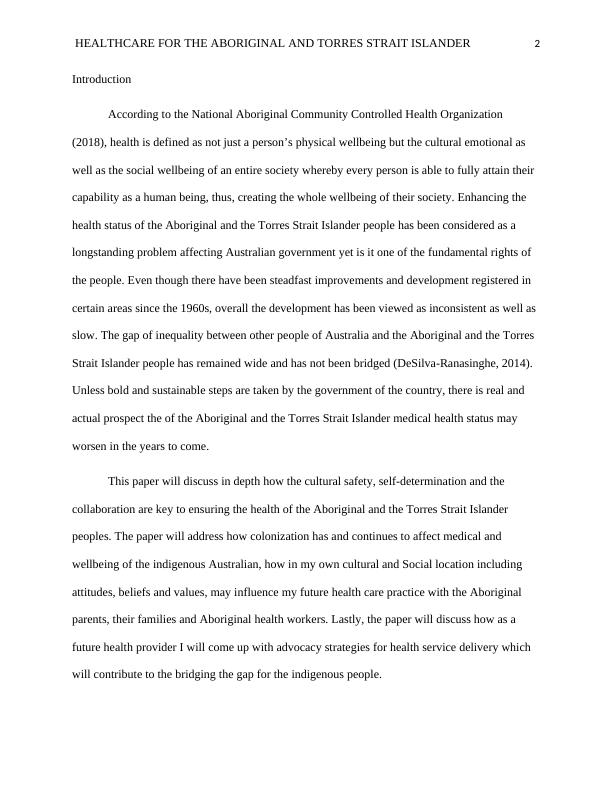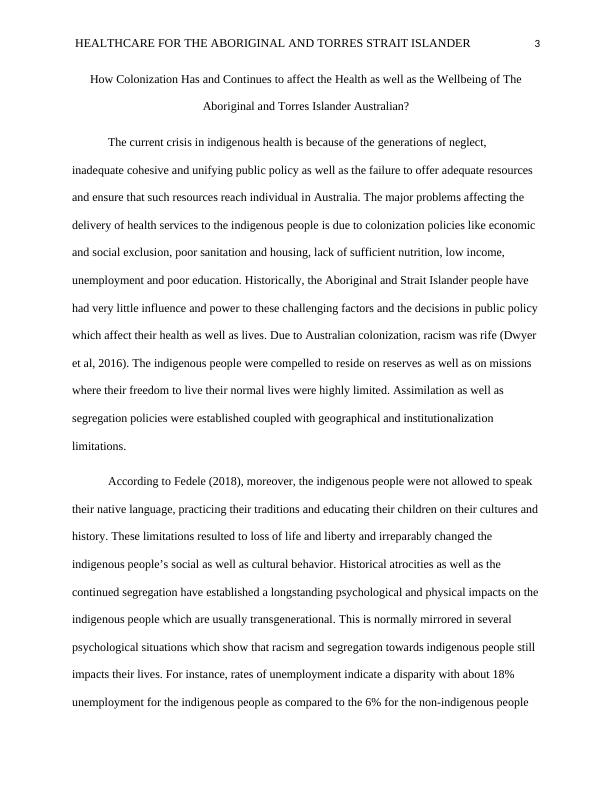Healthcare for The Aboriginal and Torres Strait Islander People
Reflect upon and discuss the key messages of the unit: Cultural safety, self-determination and collaboration are central to ensuring the health of Aboriginal and Torres Strait Islander peoples.
8 Pages2027 Words360 Views
Added on 2023-06-03
About This Document
This paper discusses how cultural safety, self-determination, and collaboration are key to ensuring the health of the Aboriginal and the Torres Strait Islander peoples. It also addresses how colonization has and continues to affect medical and wellbeing of the indigenous Australian.
Healthcare for The Aboriginal and Torres Strait Islander People
Reflect upon and discuss the key messages of the unit: Cultural safety, self-determination and collaboration are central to ensuring the health of Aboriginal and Torres Strait Islander peoples.
Added on 2023-06-03
ShareRelated Documents
End of preview
Want to access all the pages? Upload your documents or become a member.
Aboriginal and Torres Strait Islander Health and Wellbeing
|6
|2051
|478
Sample Assignment on Trauma PDF
|14
|3459
|24
Impact of Colonization on Aboriginal Assessment
|8
|1813
|14
Health Disparity in Indigenous and Non-Indigenous People in Australia
|9
|2428
|92
Closing the Gap Policy and its Significance to Indigenous Australians
|9
|2301
|364
Media’s Influence on the Health and Wellbeing of Aboriginal and Torres Strait Islander People
|19
|3252
|258



